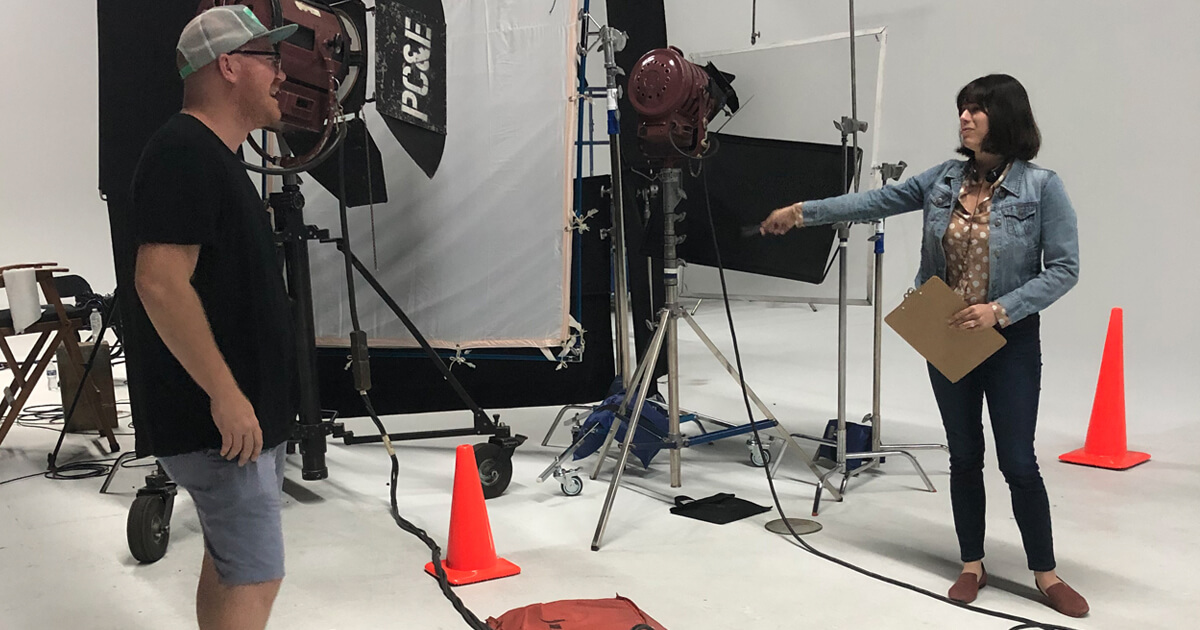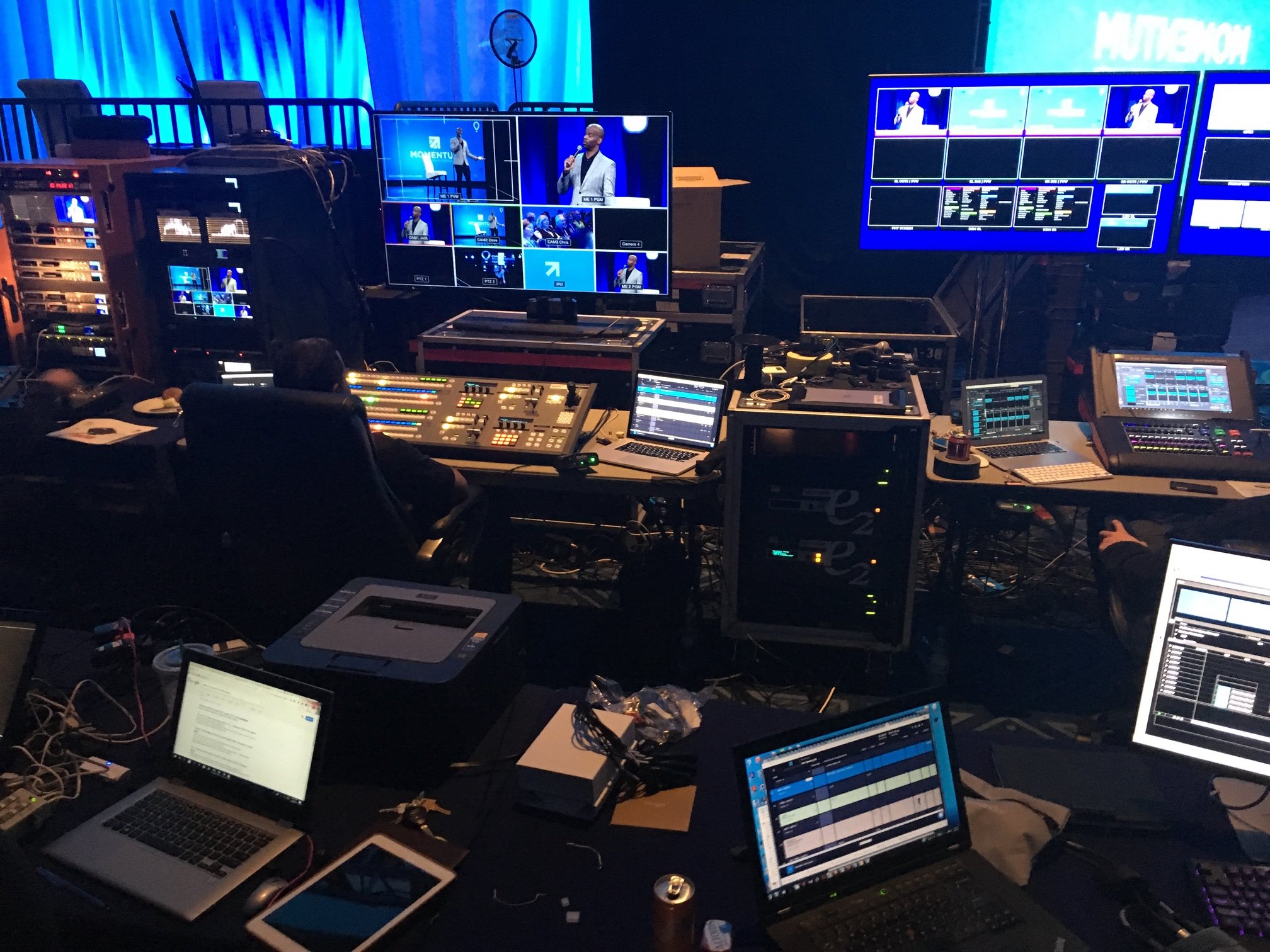Just How Event Production Functions: A Comprehensive Check Out the Process
Event production is a complex and organized procedure that requires cautious preparation and implementation. It starts with establishing clear purposes and understanding the target market. Each step, from budgeting to place selection, plays a vital duty in making certain success. As the process unravels, different components should straighten seamlessly. The subtleties of this detailed procedure commonly go undetected. What are the key phases that add to a memorable event?

The First Drawing Board
When beginning on event production, mindful preparation is crucial to guarantee an effective end result. The first drawing board offers as the foundation for all subsequent initiatives. During this stage, event manufacturers have to define the event's objective and objectives clearly. Identifying the target market aids customize the experience and messaging, ensuring significance and engagement.Producers need to likewise consider the event style, whether it be in-person, online, or hybrid, as this will certainly influence different logistical components. Choosing an appropriate day and venue is essential, as it impacts accessibility and availability.Furthermore, assembling a reputable group is fundamental for separating obligations and simplifying interaction. Establishing a timeline with landmarks guarantees all jobs are completed on schedule. This phase involves complete study, including recognizing potential difficulties and creating approaches to alleviate risks. Inevitably, a well-structured preliminary planning stage establishes the tone for an effective event production journey.

Budgeting and Source Allowance
In event production, efficient budgeting and resource appropriation are critical for success - event production charlotte. Establishing economic parameters establishes the foundation for all succeeding choices, while source circulation strategies guarantee that every component of the event is adequately supported. With each other, these components help maintain control over expenses and enhance making use of offered sources
Establishing Financial Parameters
Developing financial parameters is essential to the success of any event production, as it establishes the structure for efficient budgeting and source allocation. This process begins with defining the general budget plan, which includes all facets of the event, including place costs, catering, and advertising and marketing. By recognizing readily available funds, event organizers can prioritize expenses and designate sources accordingly. Furthermore, it is important to conduct extensive marketing research to expect possible expenses and recognize funding sources, such as sponsorships or ticket sales. Developing clear economic criteria also aids in risk administration, allowing planners to set aside backup funds for unexpected costs. Ultimately, a distinct spending plan acts as a roadmap, guiding the event production group towards achieving their objectives while keeping economic control.
Source Circulation Strategies
Effective resource distribution strategies are crucial for making the most of the influence of an occasion while adhering to budget plan restrictions. Successful event production needs a thorough method to budgeting and source appropriation. Organizers must prioritize important components such as location, catering, and technology, ensuring that funds are allocated to locations that improve guest experience. A detailed budget plan ought to outline expected expenditures and determine areas for potential expense savings, such as bargaining with vendors or discovering sponsorship opportunities. Furthermore, tracking expenditures throughout the planning procedure aids prevent overspending. By utilizing calculated resource circulation, event producers can provide an unforgettable experience while keeping monetary obligation, inevitably adding to the general success of the event.
Place Selection and Logistics
Picking the appropriate location is vital to the success of any type of event, as it sets the phase for the total experience. Venue option includes reviewing various factors, consisting of capability, accessibility, and place. Organizers should think about the target audience and the nature of the event, making sure the place straightens with the event's goals.Logistics play a significant duty in this process, including setups for seating, audiovisual equipment, and providing services. A well-chosen location ought to facilitate smooth circulation for attendees and team, improving engagement.Additionally, examining potential places for amenities like auto parking, toilets, and emergency exits is necessary for safety and security and comfort. The timeline for protecting the place is also essential, as prominent locations might book quickly - event production charlotte. Consequently, extensive preparation and timely execution can eventually add to a smooth event experience, making place selection and logistics fundamental components of effective event production
Innovative Idea Development
While the place establishes the physical stage, innovative concept advancement forms the event's identity and narrative. This process begins with determining the event's purpose and target market, allowing event producers to formulate an engaging theme that resonates with attendees. Conceptualizing sessions commonly include varied point of views, cultivating ingenious concepts that straighten with the event's goals.Once a theme is developed, visual elements such as color schemes, signage, and decor are designed to improve the overall ambience. Narration strategies might additionally be incorporated to develop an engaging journey for Recommended Site individuals, guaranteeing an unforgettable experience. Furthermore, factors to consider regarding enjoyment, activities, and interactive parts are aligned with the picked concept, strengthening the motif throughout the event.Ultimately, effective creative principle advancement guarantees that every element of the event works cohesively, leaving a lasting perception on participants and fulfilling the event's goals. This foundational work prepares for subsequent planning and execution stages.
Working together With Suppliers and Providers
Successful event production pivots on effective collaboration with vendors and suppliers. Picking trusted partners, working out agreements efficiently, and guaranteeing prompt shipments are critical action in this process. Each of these elements adds significantly to the general success and smooth implementation of an event.
Selecting Reliable Allies
How can event organizers ensure a smooth production experience? Selecting trusted companions is vital in attaining this objective. Event planners have to carry out complete research study to determine suppliers and distributors with a tested record of quality. This includes inspecting references, assessing portfolios, and evaluating client responses. Coordinators need to prioritize partners that demonstrate expertise, prompt communication, and a determination to team up. Building solid relationships promotes depend on and allows fast analytic throughout the event. Furthermore, it is useful to choose local suppliers that comprehend the venue and regional logistics. Ultimately, a successful event pivots on the synergy between planners and their partners, ensuring that every aspect of production runs smoothly and effectively.
Negotiating Contracts Successfully
Efficient negotiation of agreements is a vital action in the collaboration in between event coordinators and their suppliers and vendors. This process involves clear interaction of expectations, deliverables, and timelines. Planners should conduct complete study on market rates and industry requirements to establish a baseline for settlements. It is very important to create a joint environment, encouraging open discussion concerning terms, pricing, and potential backups. Planners need to likewise prioritize comprehending the supplier's capabilities and restrictions to straighten their requirements efficiently. Flexibility can lead to mutually valuable agreements, promoting lasting partnerships. Crafting well-defined agreements that include particular performance metrics can aid guarantee responsibility, inevitably bring about effective event implementation and satisfaction for all parties involved.
Guaranteeing Timely Deliveries
Prompt deliveries are necessary for the smooth execution of any kind of event, requiring thorough partnership between planners and their suppliers and vendors. Effective communication is vital, as it aids establish clear expectations concerning shipment timetables, quantities, and certain demands. Planners often develop comprehensive timelines to lay out critical milestones, guaranteeing all celebrations remain lined up throughout the process. Regular check-ins with suppliers can help recognize potential delays early, permitting proactive options. In addition, building solid relationships with dependable vendors promotes depend on and responsibility, which can cause better service and prioritization. By focusing on these collective efforts, coordinators can lessen disruptions, thereby improving the general efficiency of event production and making sure that all essential products and solutions arrive as intended.
Advertising And Marketing and Promotion Methods
While arranging an event, the success of advertising and marketing and promotion approaches can significantly influence presence and engagement. Effective methods commonly consist of a combination of digital advertising, traditional marketing, and grassroots outreach. Utilizing social media sites systems enables real-time communication and targeted advertising and marketing, reaching particular demographics successfully. Email try this site marketing campaigns can further involve possible participants with tailored material and reminders.Collaborations with influencers or market leaders can also improve reliability and expand reach. Producing appealing web content, such as videos or blogs, assists to generate buzz and endure interest leading up to the event. Furthermore, leveraging early-bird price cuts and special advantages can incentivize ticket purchases.Promoting with standard networks, such as posters or regional media, remains appropriate, especially in community-focused events. A comprehensive method that integrates several strategies guarantees optimum visibility and engagement, inevitably contributing to the event's success and the production of an unforgettable experience for participants.
On-Site Implementation and Management
On-site implementation and administration are important parts that determine the total success of an event. Efficient control during the event ensures that all elements straighten with the planned schedule. Event managers supervise logistics, including supplier sychronisation, tools configuration, and guest solutions. Checking timelines and addressing any kind of unexpected concerns are fundamental for maintaining a smooth experience.The staff plays a substantial role, as experienced employees are accountable for numerous tasks such as registration, info circulation, and technical support. Communication amongst employee is imperative; it cultivates a joint setting and makes it possible for fast resolution of challenges.Additionally, safety and security methods need to be complied with, protecting the wellness of all guests. Post-event examinations are also part of on-site management, offering insights for future improvements. By concentrating on these elements, event manufacturers can develop unforgettable experiences that fulfill or go beyond participant assumptions while accomplishing the event's objectives.
Frequently Asked Questions
Just how Do I Choose the Right Event Theme?
Selecting the best event theme entails considering the target market, event purpose, and venue. Researching present fads and gathering input from stakeholders can additionally inspire innovative ideas that resonate and see this here create a remarkable experience.

What Are Common Errors in Event Production?
Usual blunders in event production typically consist of inadequate planning, bad communication among employee, spending plan mismanagement, ignoring to take into consideration the target market's requirements, and falling short to perform a detailed post-event examination for future renovations.
How Can I Determine Event Success?
To gauge event success, one can evaluate attendee satisfaction, engagement degrees, spending plan adherence, and post-event feedback. Trick performance indicators, such as ticket sales and social media communications, likewise offer useful understandings right into general effectiveness.
What Should I Do if It Drizzles on the Event Day?
In the event of rain on the day, the coordinator must implement contingency plans, such as securing camping tents or relocating tasks inside your home. Interaction with participants about modifications is necessary to guarantee a smooth experience despite climate obstacles.
Exactly How Can I Make Certain Participant Involvement During the Event?
